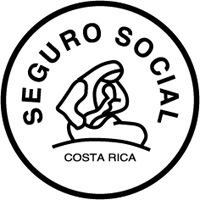Costa Rica News – For many of us that received our February CAJA bill, we were surprised by a rate increase. For one of our writer’s Kerry this was what she said “When I paid my February health insurance to the CCSS, I was shocked that I was short. My payment had been the same ever since I enrolled with the CAJA. And boy what a big jump it was!” She is not the only one complaining.
The CAJA is meant as a fund to pay for medical services and retirement for all Costa Ricans and residents. Foreigners living in Costa Rica are now required to pay for this insurance, even if they don’t plan to use it.
The system is heavily regulated for workers and employers, but for the voluntary contributors and independent workers (most foreigners fall under one of these categories) the rules are vague, leaving room to greatly change the fee amounts to be paid. Section 3 of the CCSS Law allows too much flexibility. The Executive Board of CAJA can charge basically whatever they decide.
Every so often, they have a meeting to establish the rate for these fees and this took place in Novemer of last year. On January 14th, 2014, they published the newest rates, which in turn makes them in effect.
The fees should be determined by your income in relation to the minimum wage for your job, but as it is with mot things it is quite hard to understand the table put together by the CCSS a Costa Rican entity.
The following was a table done by Outlier Legal to break it down in easy to understand terms.
When you think about it this is pretty ingenious of the Costa Rica government to get extra cash into the CAJA system. The law basically has a loophole which allows them to set it as they please and they took advantage of that. Expats are finding it harder and harder to do the perpetual tourism thing and leave every 90 days which is pushing  them to apply for residency. When applying for residency most have claimed the full amount of their income to achieve residency so the government knows how much you are making and they can charge the full amount of CAJA. All residents must pay into the CCSS system.
them to apply for residency. When applying for residency most have claimed the full amount of their income to achieve residency so the government knows how much you are making and they can charge the full amount of CAJA. All residents must pay into the CCSS system.
For those that are making over $3000 a month which is a number you pretty much need to hit you are going to be paying close to $400 a month or $4,800 a year to CAJA. That is pretty steep for those retiring on a budget or just living in Costa Rica.
This will probably have the short term effects that the Costa Rica government wants to achieve which is more money into the system, but I think in the long term this will hurt Costa Rica. It is getting less and less attractive to retire in Costa Rica when there are options like Nicaragua, Uruguay, and Mexico which have become more expat friendly for retiring abroad.
I agree that if you live here you should pay to be a part of the system but when will it pass the level to start pushing people out or deterring people from entering? Or has it already gotten to that point?


